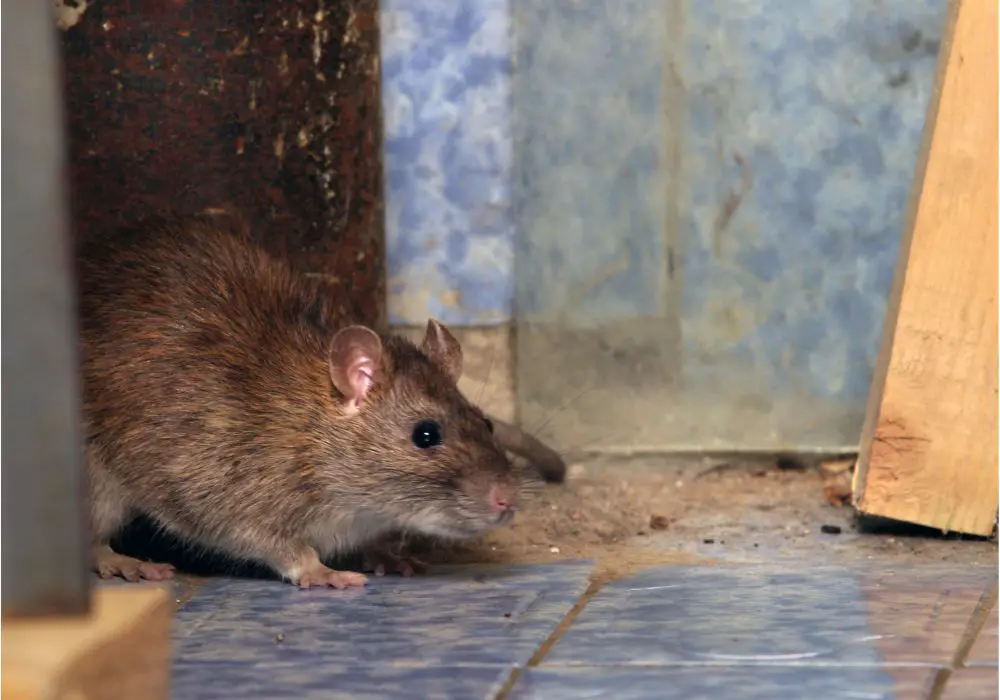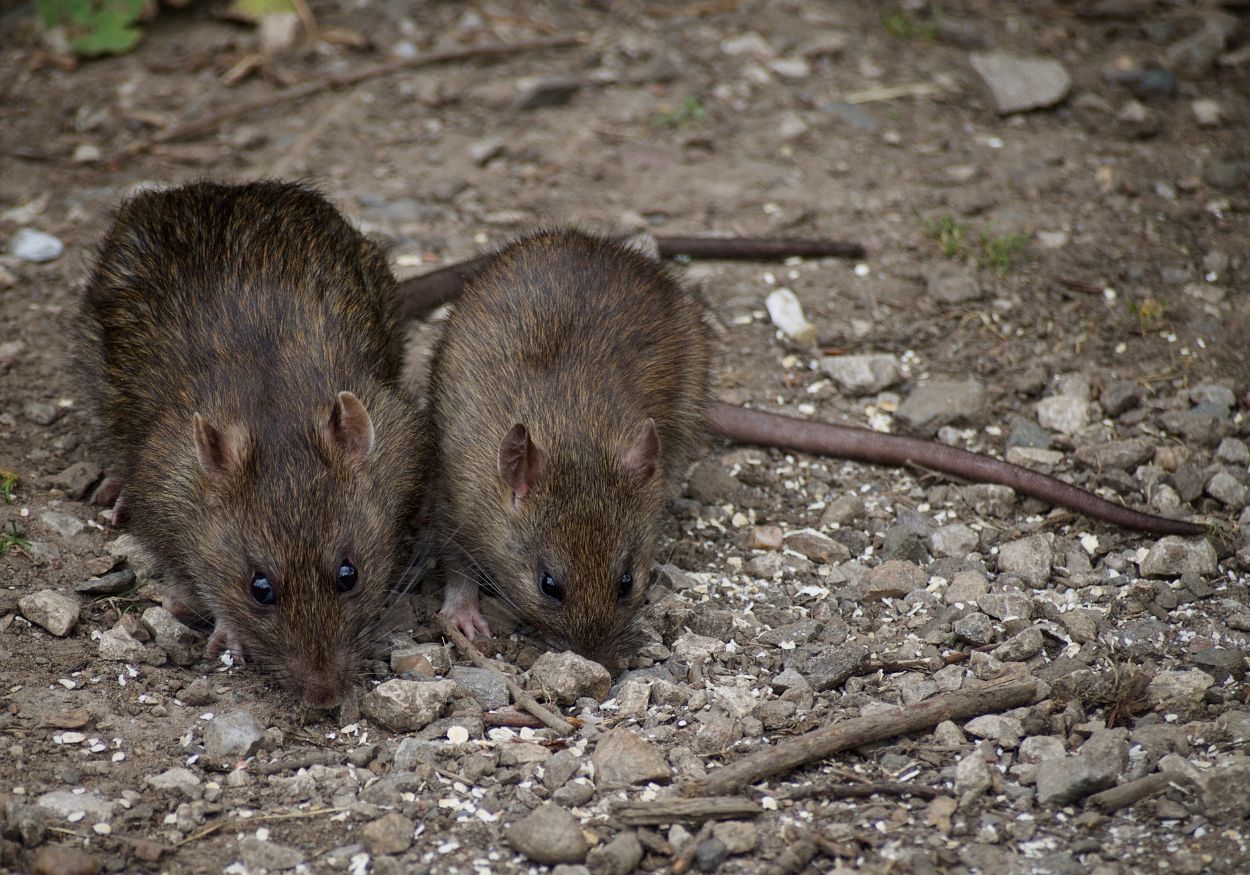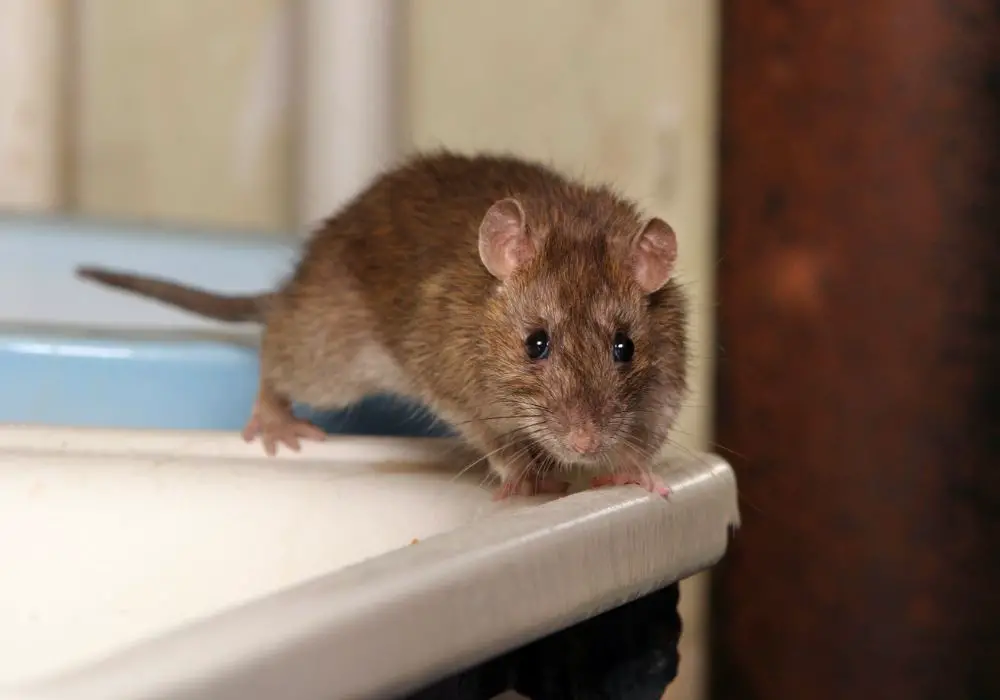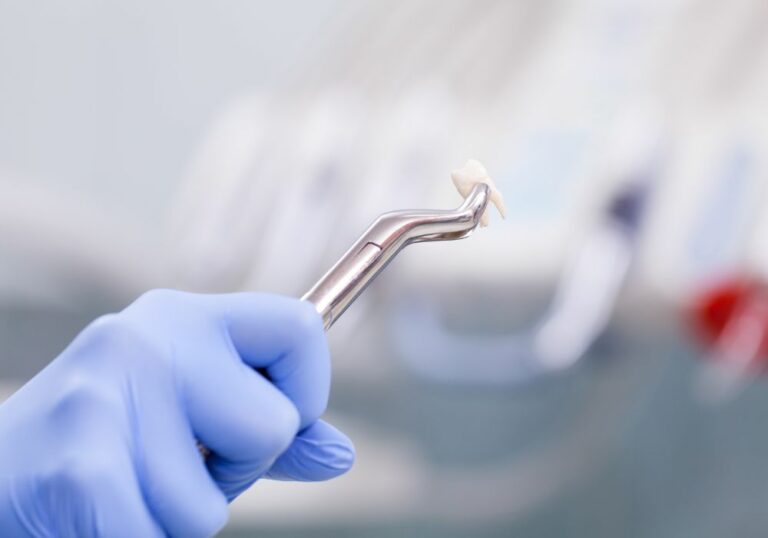If you’re dealing with a rat infestation, you’re probably wondering what they can and can’t chew through. Rats are known for their sharp teeth and powerful jaws, which can make them a formidable foe when it comes to property damage. In this article, we’ll explore what rats can bite through and what materials are safe from their gnawing.
One thing to keep in mind when it comes to rats is that they have teeth that never stop growing. This means that they’re constantly looking for things to chew on to keep their teeth from getting too long. Rats are capable of chewing through a wide range of materials, including wood, plastic, and even some metals. However, there are certain materials that are more resistant to their teeth than others.
Rats Teeth: An Overview

Rats are known for their sharp teeth and their ability to gnaw through almost anything. But what makes their teeth so unique? In this section, we will provide an overview of rats’ teeth, including their structure, function, and growth.
Structure
Rats have a total of 16 teeth, which are divided into four incisors and 12 molars. Their dental formula is 2 x (1 1/1, C 0/0, P 0/0, M 3/3). The incisors are located at the front of their mouth and are used for gnawing and cutting. They are large, curved, and constantly growing, which means they need to be worn down regularly to prevent overgrowth.
The molars, on the other hand, are located at the back of their mouth and are used for grinding and chewing. They have a flat surface with ridges that help break down food.
Function
Rats’ teeth are essential for their survival. They use their sharp incisors to gnaw through various materials, including wood, plastic, and metal. They also use their molars to grind and chew food, which allows them to extract maximum nutrition from their diet.
Rats’ teeth are also used for self-defense. When threatened, they can bite with incredible force, which can cause serious injury to predators or humans.
Growth
One of the most unique features of rats’ teeth is their ability to grow continuously throughout their life. This is because their teeth are made up of layers of dentine and enamel, which are constantly added to the base of the tooth. As the tooth grows, the older layers are pushed outwards, making room for the new layers.
However, this continuous growth can also be a problem for rats. If their teeth are not worn down regularly, they can become overgrown, which can lead to dental problems and even death.
In conclusion, rats’ teeth are a remarkable feat of evolution. Their sharp incisors and grinding molars are essential for their survival, and their ability to grow continuously allows them to adapt to their environment.
Materials Rats Teeth Can Bite Through

Rats are known for their powerful jaws and sharp teeth, which allow them to chew through a variety of materials. Here are some common materials that rats can easily bite through:
Wood
Rats can easily chew through wood, including furniture, doors, and even structural beams. They are particularly attracted to softwoods like pine and cedar, which are easier for them to gnaw through. If you have rats in your home, it’s important to inspect any wooden structures for signs of damage and take steps to prevent further chewing.
Plastic
Plastic is another material that rats can easily chew through. This includes items like plastic bags, containers, and pipes. Rats are often attracted to plastic because it can be easily gnawed through and provides a source of food or shelter. If you have plastic items in your home, it’s important to store them in airtight containers to prevent rats from accessing them.
Aluminum
While aluminum is a strong and durable material, rats are still able to chew through it with their sharp teeth. This includes items like aluminum foil, cans, and gutters. Rats are often attracted to aluminum because it provides a source of food or shelter. If you have aluminum items in your home, it’s important to inspect them regularly for signs of damage and take steps to prevent further chewing.
Overall, rats are able to chew through a wide variety of materials, including wood, plastic, and aluminum. If you have rats in your home, it’s important to take steps to prevent them from accessing these materials and causing damage. This may include sealing up any gaps or holes in your home, storing food in airtight containers, and using rat traps or other deterrents.
Factors Influencing Rats Biting Ability

Rats are known for their powerful jaws and sharp teeth, which allow them to bite through a variety of materials. However, several factors can influence their biting ability. In this section, we will discuss the three most important factors that affect a rat’s biting ability: teeth strength, age, and diet.
Teeth Strength
A rat’s teeth are its primary tool for biting and chewing. Their incisors never stop growing, which means they need to constantly wear them down by gnawing on hard objects. However, the strength of a rat’s teeth can vary depending on a few factors, including genetics and dental health.
If a rat’s teeth are not properly aligned, it can affect their biting ability. For example, if their teeth are too long or crooked, they may have difficulty biting through hard objects. Similarly, if a rat has dental problems such as cavities or gum disease, it can weaken their teeth and make it harder for them to bite through tough materials.
Age
As rats age, their teeth can become weaker and more brittle. This can make it harder for them to bite through hard objects. Additionally, older rats may have dental problems such as gum disease or tooth decay, which can further weaken their teeth.
Diet
A rat’s diet can also affect their biting ability. Rats that are malnourished or have a diet lacking in essential nutrients may have weaker teeth, which can make it harder for them to bite through hard materials. On the other hand, rats that have a diet rich in calcium and other minerals can develop stronger teeth, which can make it easier for them to bite through tough objects.
In conclusion, a rat’s biting ability can be influenced by several factors, including teeth strength, age, and diet. By understanding these factors, you can take steps to ensure that your home or property is protected from rat damage.
Preventing Damage Caused by Rats Teeth
Rats are known for their powerful teeth, which can cause damage to various materials. To prevent damage caused by rats’ teeth, you can take certain measures. In this section, we will discuss two effective ways to prevent rats from causing damage.
Rat-Proof Materials
One way to prevent rats from causing damage is to use rat-proof materials. These materials are designed to withstand the gnawing and biting of rats. The following table lists some rat-proof materials that you can use:
| Material | Description |
|---|---|
| Steel wool | Rats cannot chew through steel wool. |
| Concrete | Rats cannot chew through concrete. |
| Hard plastic | Rats cannot chew through hard plastic. |
| Copper mesh | Rats cannot chew through copper mesh. |
By using these materials, you can protect your property from rat damage.
Effective Rat Traps
Another way to prevent rats from causing damage is to use effective rat traps. Rat traps are designed to catch rats and prevent them from causing damage. The following are some effective rat traps that you can use:
- Snap traps: These are the most common type of rat trap. They are designed to kill rats instantly.
- Glue traps: These traps use a sticky substance to trap rats.
- Live traps: These traps catch rats alive, allowing you to release them elsewhere.
When using rat traps, it is important to place them in areas where rats are likely to travel. You should also check the traps regularly to ensure that they are working properly.
By using rat-proof materials and effective rat traps, you can prevent rats from causing damage to your property. Remember to take action as soon as you notice any signs of rat activity to prevent further damage.
Frequently Asked Questions
What materials can rats chew through?
Rats are known for their strong teeth and powerful jaws, which allow them to chew through a wide range of materials. They can easily chew through wood, plastic, and even some metals. However, it’s important to note that rats prefer to chew on softer materials like cardboard and paper, as these materials are easier to gnaw through.
Can rats chew through metal cages?
Yes, rats can chew through metal cages if the metal is thin or rusted. However, if the metal is thick and sturdy, rats may have a harder time chewing through it. It’s important to use sturdy cages made of thick metal to prevent rats from escaping.
Can rats chew through chicken wire?
Yes, rats can easily chew through chicken wire. Chicken wire is made of thin metal wires that rats can easily gnaw through. If you want to keep rats out of your chicken coop, it’s important to use a stronger material like hardware cloth.
Can rats bite through glass?
No, rats cannot bite through glass. Glass is too hard and smooth for rats to gnaw through. However, rats can still cause damage to glass by scratching or clawing at it.
What can rat teeth cut through?
Rat teeth are very sharp and can easily cut through soft materials like paper, cardboard, and fabric. They can also chew through harder materials like wood, plastic, and some metals. However, rat teeth are not strong enough to cut through thick metal or concrete.
Can rats chew through brick walls?
Yes, rats can chew through brick walls if the mortar is weak or damaged. However, it’s rare for rats to chew through brick walls as they prefer softer materials like wood and plastic. If you suspect that rats are chewing through your brick walls, it’s important to have a professional inspect and repair the damage.






